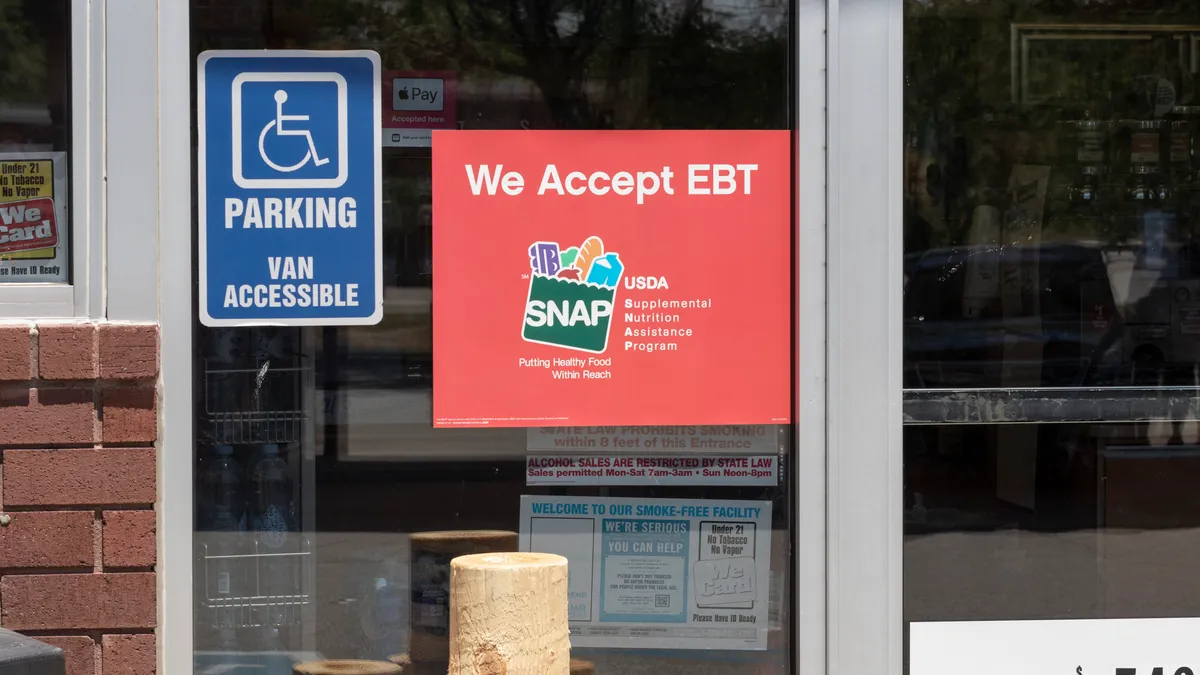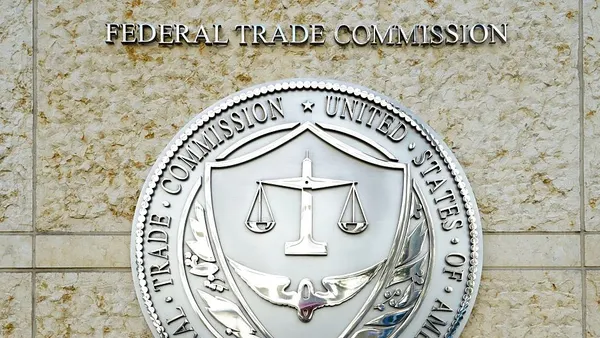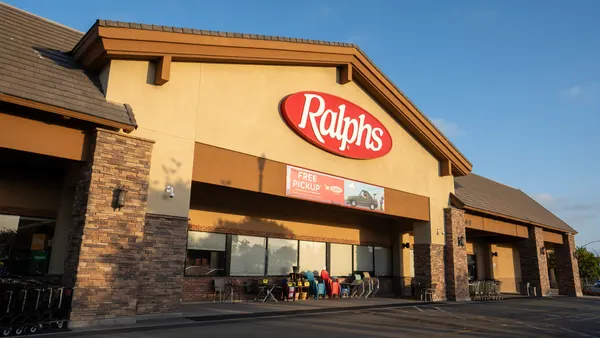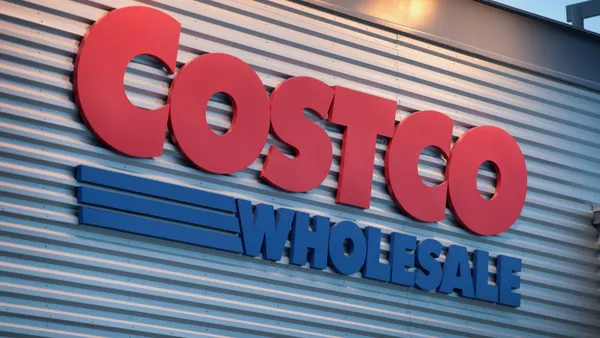As SNAP participants continue to face uncertainty over funding to their EBT cards, false and misleading information has spread across social media about what this lapse in funding could mean for grocery store theft.
Recent viral TikTok videos claimed that Walmart would close its doors on Nov. 1 in response to the lapse in November SNAP funding. The videos have since been taken down, but other videos that gained traction showed Walmart parking lots that appear deserted, with claims that the stores were closed.
Walmart confirmed with Snopes, a popular fact-checking website, that it never announced plans to close stores on Nov. 1 and stated that its stores would be open that day. The retailer did not respond to a request to comment from Grocery Dive by publication time.
Fox News added to this narrative with a late October article headlined “SNAP beneficiaries threaten to ransack stores over government shutdown.” The right-wing media outlet cited videos of SNAP users confronting grocery store staffers and threatening to steal food, a mother demanding her followers send money for groceries, and a Walmart employee sharing he went home because of people “bum-rushing [and] stealing” at a store due to changes in SNAP benefits.
However, it appears some or all of the videos the outlet cited were generated by artificial intelligence. Fox News heavily altered its article after publication and updated the headline.
“This article previously reported on some videos that appear to have been generated by AI without noting that. This has been corrected,” Fox News wrote in an editor’s note. The story appears to have been pulled from Fox News’ website.
Despite the panic that spread across social media regarding store lootings and an uptick in mass theft due to the ongoing lapse in SNAP benefits, the grocery industry doesn’t see a cause for concern.
Doug Baker, FMI — The Food Industry Association’s vice president of industry relations, said that the organization’s Asset Protection Council “remains optimistically cautious,” but sees no reason to deploy any increased security measures or develop new ones due to the suspension in SNAP funding.
“[The Asset Protection Council members] have their plans and their strategies that they can deploy if they see any change. But as of right now, there’s been no change, no reason for them to actually deploy those strategies,” Baker said in an interview with Grocery Dive late last week.
Retailers can deploy previously established tactics, which range from placing additional staff members at front entrances to limiting self-checkout kiosks to partnering with third-party security services, if necessary, he said.
Barbara Staib, director of communications for the National Association of Shoplifting Prevention, compared recent unrest with the lapse in SNAP funding and the ongoing government shutdown to the economic recession that roiled the U.S. in 2008 and 2009.
Staib said that there was a temporary rise in shoplifting during that recession, but noted it was a case of “maladaptive behavior” in response to fear and economic uncertainty — in other words, not professional theft or organized looting.
So while social media may be spreading the idea that “the lady on a fixed income whose husband died last month” with committing professional organized retail crime, this is inaccurate, Staib said.
Grocers should be aware of how consumer shoplifting fluctuates with economic uncertainty, as education and re-education are key to addressing these circumstances, she said. However, as it stands today with the SNAP suspension and the government shutdown, Staib doesn’t anticipate supermarkets needing to take heightened precautions. Instead, she recommends that they do what they’re currently doing, just on higher alert.













